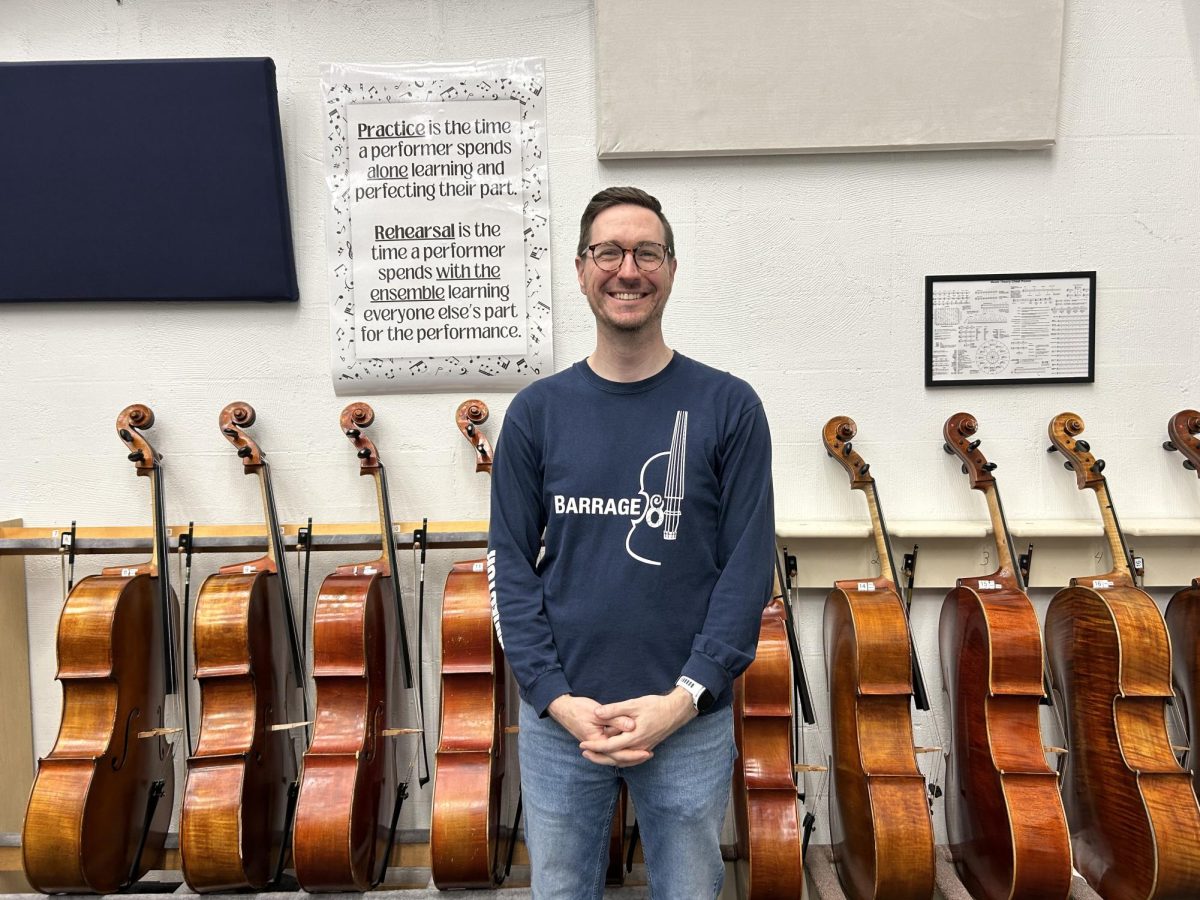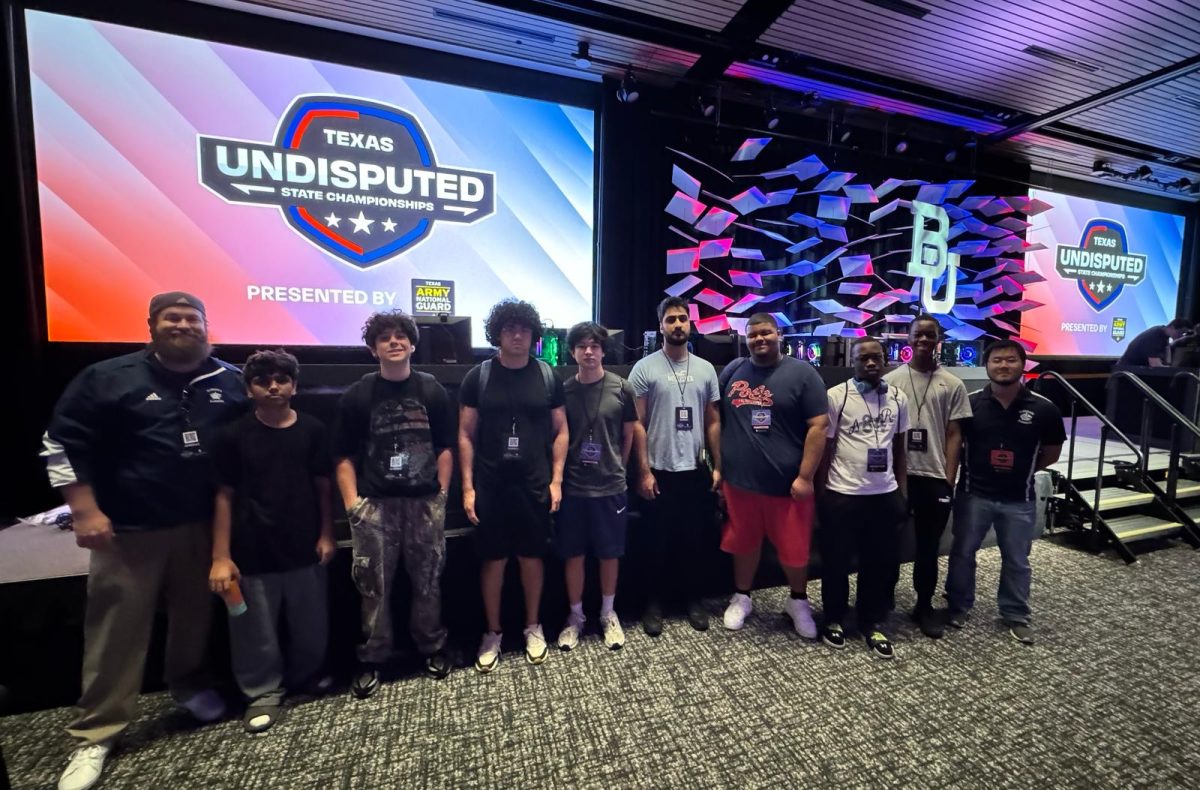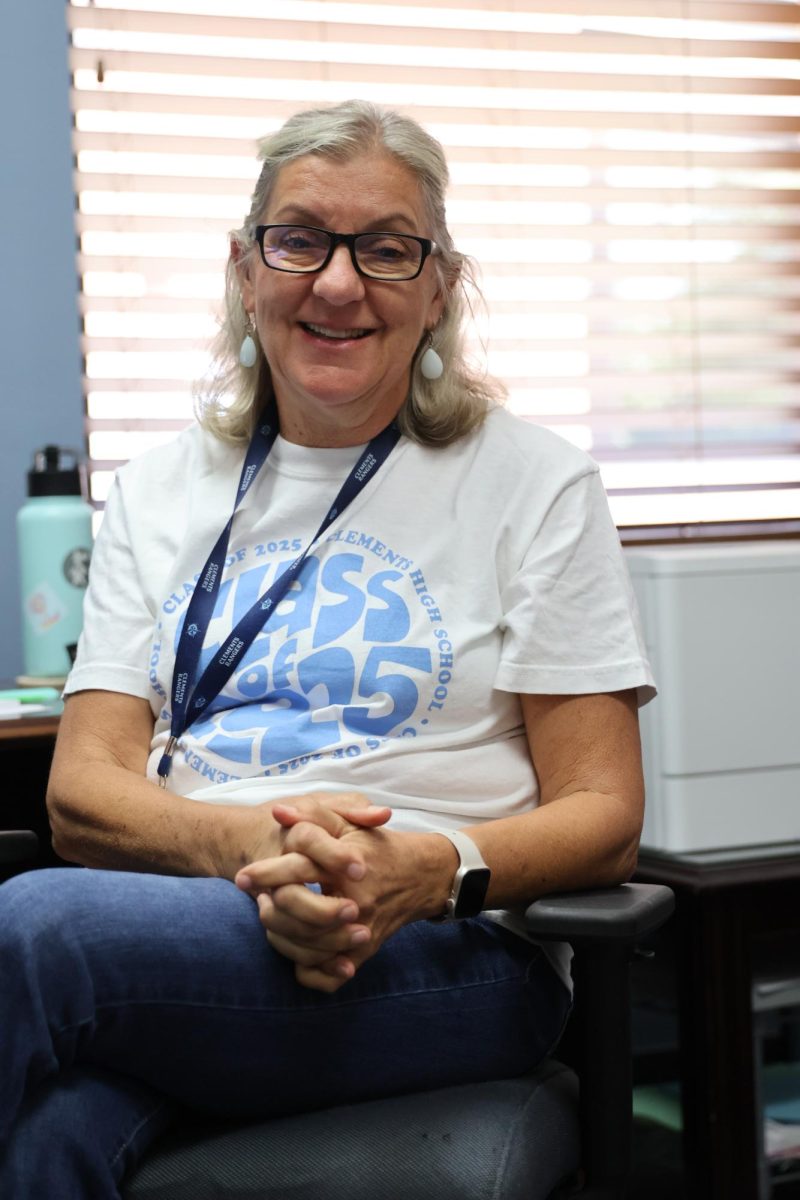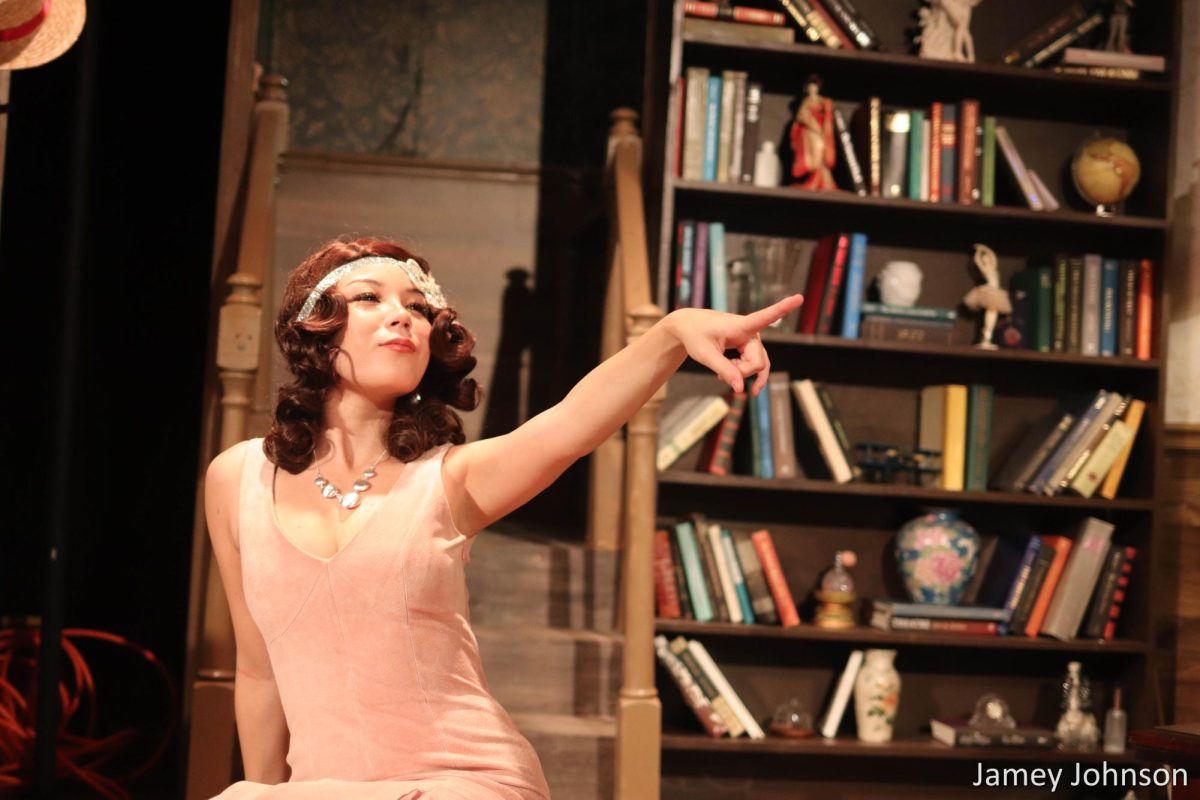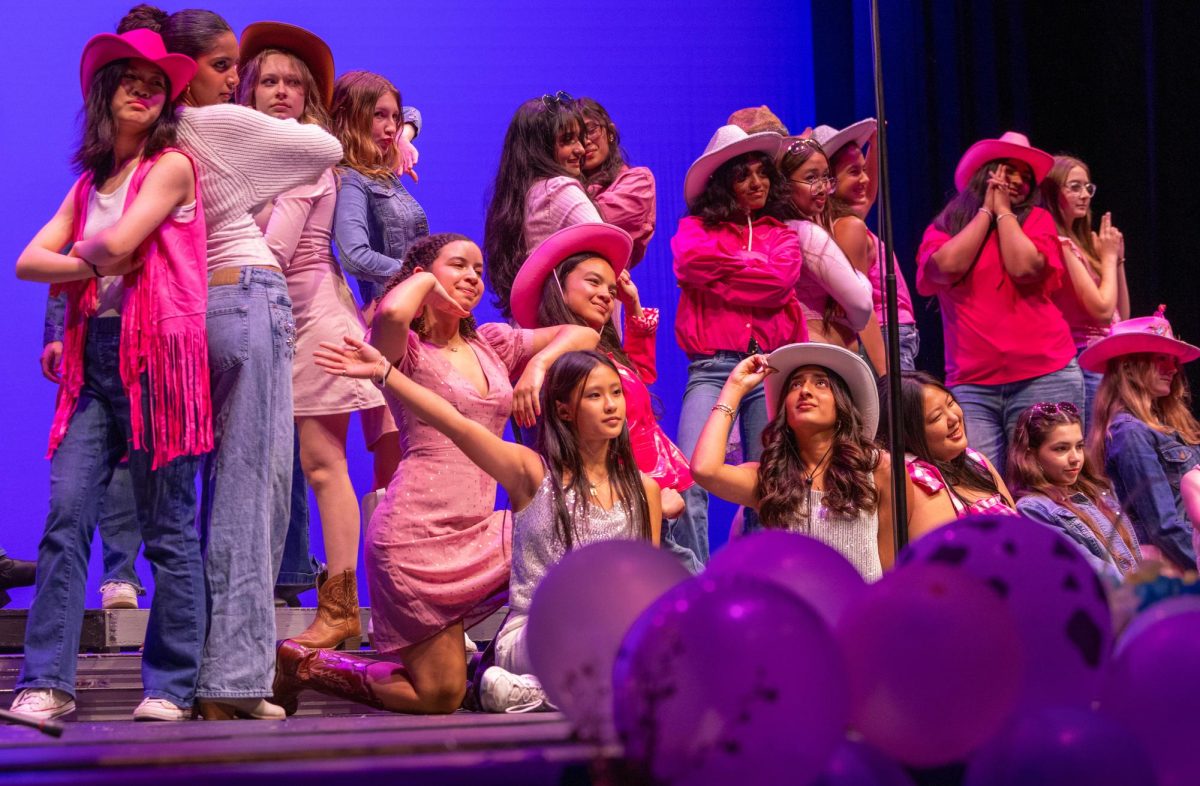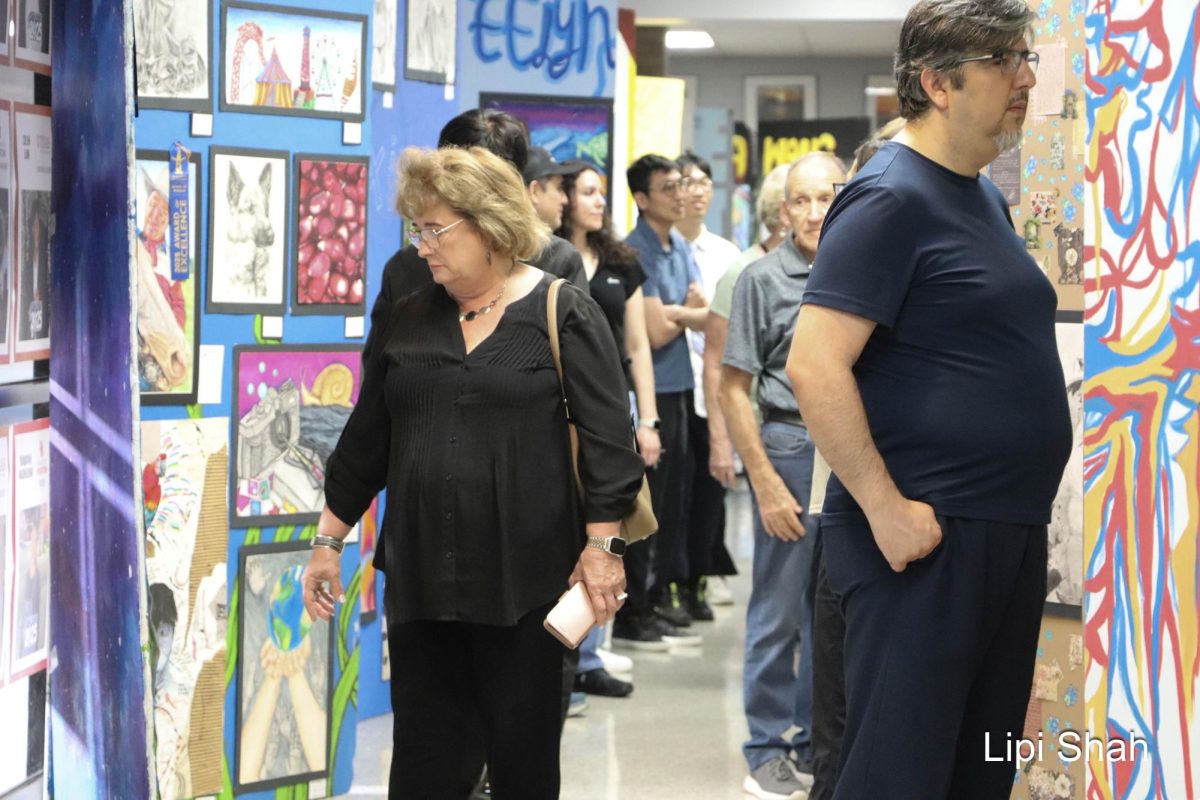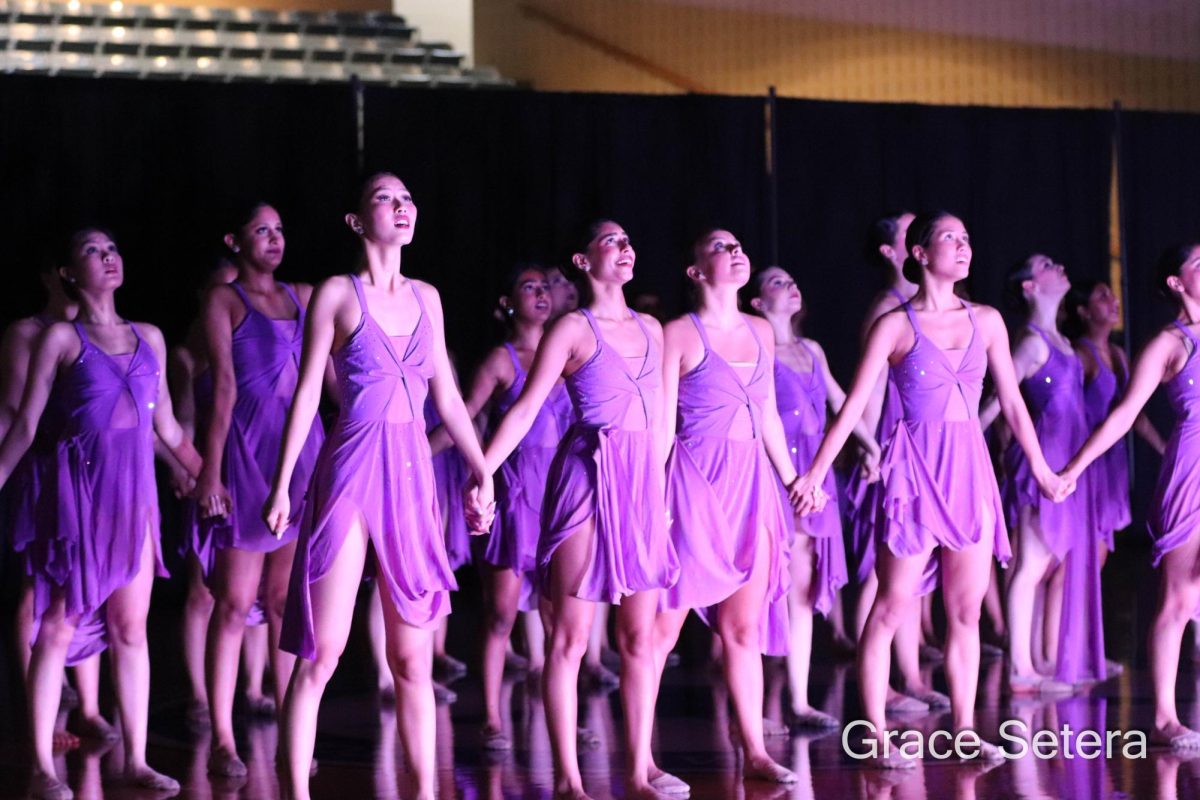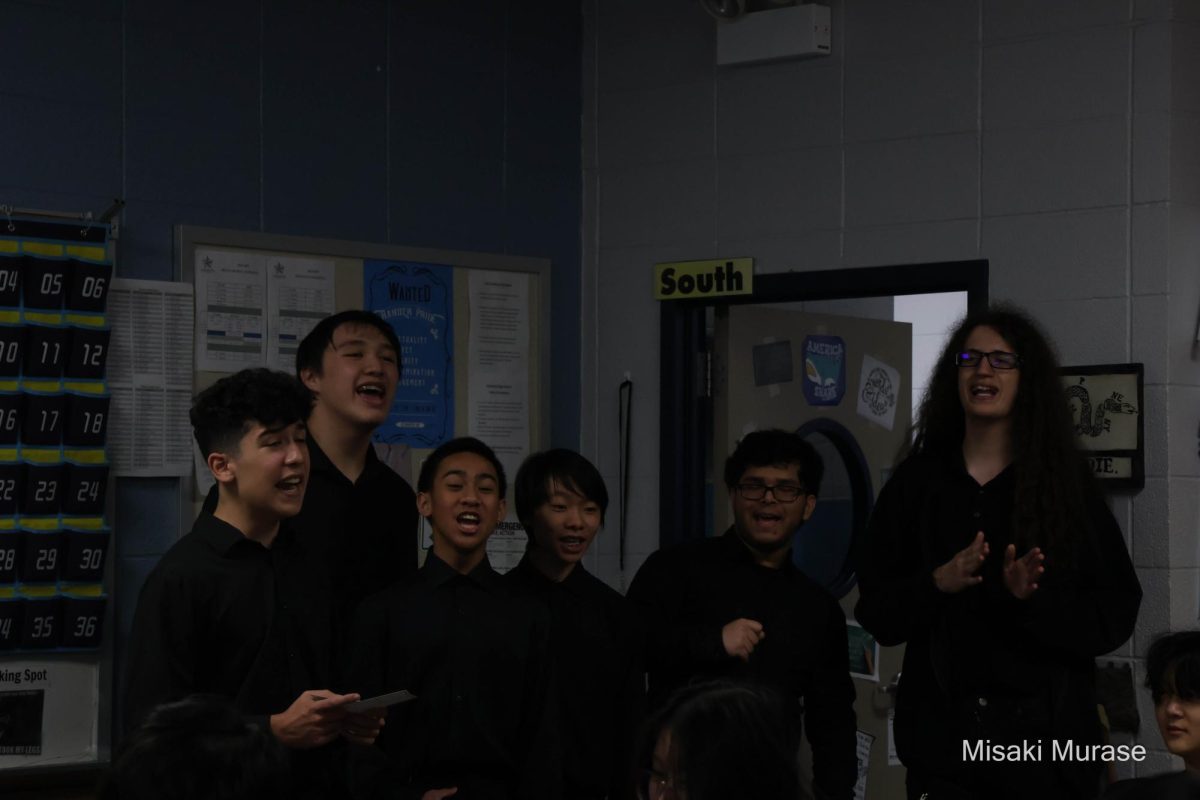Golden light pours from the slightly melodramatic lamps stationed around the room in harmony with the soft melody floating in from the ajar door. Orchestra director Neal Springer overlooks the practice session, cup of steaming coffee in hand.
“We teach six orchestras every single day and sometimes we have an after school rehearsal,” Springer said. “[We’re] not just teaching the students the music that they’re working on in class but also teaching them how to become stronger musicians. We spend some time working on tuning every single day, warming up on some rhythm exercises or certain sections of the music and then really digging in deep to what we’re working on in class.”
When it comes to drilling, Springer’s motto is that while “practice doesn’t make perfect, perfect practice creates permanence.” Springer considers himself a guide, ensuring that the students have all of the tools necessary for success, so he can later be taken out of the equation at home.
“I put a lot of emphasis on working together, which is good for what we do because we spend every day as rehearsal time and that way [students] are evaluating how they fit into the ensemble that they’re working with,” Springer said. “They’re evaluating how they can improve individually, but also how the ensemble can work together, communicating with one another nonverbally through music, through eye contact.”
Whether in small chamber ensembles, playing pop music or classical Mozart, or tackling brand new pieces, Springer emphasizes giving students as many opportunities to perform as possible. Competitions, like UIL, happen all throughout the year.
“We record a lot of our performances,” Springer said. “Our varsity orchestra enters into the TMEA State Honor Contest for both full and string orchestra, so we compete with that in the fall and the spring.”
In all, Springer and associate Orchestra director Sally Kirk juggle seven different orchestras: six string orchestras and one symphony orchestra. Despite being “a lot to try to balance” at times, according to Springer, each one remains independent.
“They’re working towards the same calendar,” Springer said. “They’re all going to have a performance at a certain time, but they’re all working on different skills, different articulations, different styles, different pieces. The varsity group meets a little bit more after school, but each class, we see every day and we work with the same expectations. Even though their music might not be as crazy or complex, they’re expected to still learn and achieve at a high level.”
One of Springer’s most memorable moments includes traveling to Carnegie and performing on stage in New York. On a smaller, annual scale, he especially enjoys the end of the year banquet, where, occasionally, older alumni will return.
“We always get a chance to not just encourage the seniors but to be able to celebrate them and their four years of being here in our program,” Springer said. “It’s always good to see that.”
Unlike many neighboring schools, Springer and Kirk chose not to use the ‘chairing’ system that utilizes a hierarchy of seating positions to push the stronger players to the front, with first chair being the most important position in a section.
“We try to blend the sections so that strong players are at the front of the section and the back,” Springer said. “Even the varsity orchestra right now, we have all-staters who sit at the back of he sections, because we want the strength and depth to be spread through the whole orchestra.”
It’s organized this way to encourage students to keep working on the music all throughout the year, not just prior to chair auditions. Springer also remains dedicated to consistently practicing the viola, which he has played for 25 years now.
“If I’m practicing my instrument, normally it starts with some warm-up, most of the time scales or long tones, trying to center whatever I’m about to start working on,” Springer said. “If I’m trying to prepare for performing with an ensemble, I spend some time with a metronome, really working on my individual viola part, how it’s going to fit in, trying to isolate some of those trouble spots.”
To Springer, music is not only a stress relief but also a “universal language.” While traveling to Japan in the summer of 2023 with the exchange students, Springer and the orchestra students present performed a piece of music for the Japanese students.
“They performed their string instruments for us [too],” Springer said. “So it was not just an exchange culturally, but musically as well. It was really cool to see [how] language was a barrier but music wasn’t.”
Prior to the trip, Springer — who describes himself as someone “always wanting to learn” — started learning Japanese on Duolingo to better communicate with the exchange students. Now, he has over an 800-day streak. His passion for learning new things has led him to become a more well-rounded person that keeps an open mind. Even with his love for spontaneity, Springer still sticks to his daily routines.
“Routines are very helpful [for relieving stress],” Springer said. “I try my best to prioritize things. If it’s important but not urgent, [I’ll] put it to the side and come back to it. Oftentimes, we get slammed with a lot of urgent things at one time.”
In times like those, Springer’s biggest challenge is finding time to get everything done but also time for him to indulge in his love, music.
“I would love to just be able to play music and teach music,” Springer said. “It’s all the other things, paperwork, meetings, trainings, [that get in the way]. Sometimes, it can take away the joy of being able to get up and teach in front of students.”
Springer’s love for music was present from an early age, though it was in high school that he decided he would begin pursuing it professionally, in part due to two formative pieces: “The Planets” by Gustav Holst and “Appalachian Spring” by Aaron Copland. It was also in high school that he discovered his love for teaching.
“It wasn’t until senior year that I [realized] I could do both at the same time,” Springer said. “My orchestra teacher really influenced me, [saying] I had strengths to encourage people [to] listen to music and to be able to give feedback. The rest is history.”
Earlier in his career, Springer worked at Crockett Middle School for three years. However, Springer knew he wanted to teach high school, so when an assistant position opened up at Clements, he jumped at the opportunity.
“This is my 11th year at Clements now, and my sixth year as head director,” Springer said. “I didn’t know I would be here this long, but [once I got here], I knew that it was definitely a place to stay and learn. And now, I get the chance to lead.”
Springer was also one of the “most inspiring reasons” to come to Clements, according to Kirk, as they had known each other since the start of their teaching careers.
“Mr. Springer and I have been good friends for going on nearly 15 years,” Kirk said. “We used to know each other, separate schools, and then he actually called me when the assistant job was open…I [had] such high regard and respect for what he does as a teacher, as a district leader, and I [knew] he would be someone I’d want to work with and learn from.”
After two and a half years of working together now, Kirk said she knows she “made a great choice.” Besides being a “fantastic conductor” in Kirk’s eyes, Springer has also taught her a lot of vital organization and leadership-based skills.
“On the computer, he’s so tech-savvy,” Kirk said. “He knows how to organize things that translate from the orchestra world. For example, he had to organize over 150 solo and ensemble events, but he does it in such a way that’s seamless and efficient.”
Not only do they support each other with the logistics and technical work but also in the classroom, with that initial bond stemming from a shared love for music. For Kirk, music is something that’s able to connect people on Earth to the spiritual world.
“Music is one of the biggest life-altering forces that can exist here on Earth,” Kirk said. “It has a healing quality for mental, spiritual, physical. My favorite thing about music is that we are given this gift that we can use as a means to connect with people, with God, with nature, and experience some of that unearthly supernatural that is unexplainable, really.”
Senior Prefect Evie Su, who has known Springer since freshman year, said he’s easy to collaborate with and very understanding.
“He’s always been a really nice and level-headed teacher,” Su said. “I always thought that he worked very efficiently, but it was always a nice balance of [that] and keeping the fun in a classroom.”
One of Su’s fondest memories are the less serious times when Springer is able to joke around with the class. Senior Prefect Julie Song also said she appreciated that dynamic in the classroom — it shows Springer’s dedication in connecting with each individual student.
“He really puts a lot of effort into everything he does, and you can tell he’s committed, even if some days, we might be on and off, but he’s the constant force in the orchestra program,” Song said.

